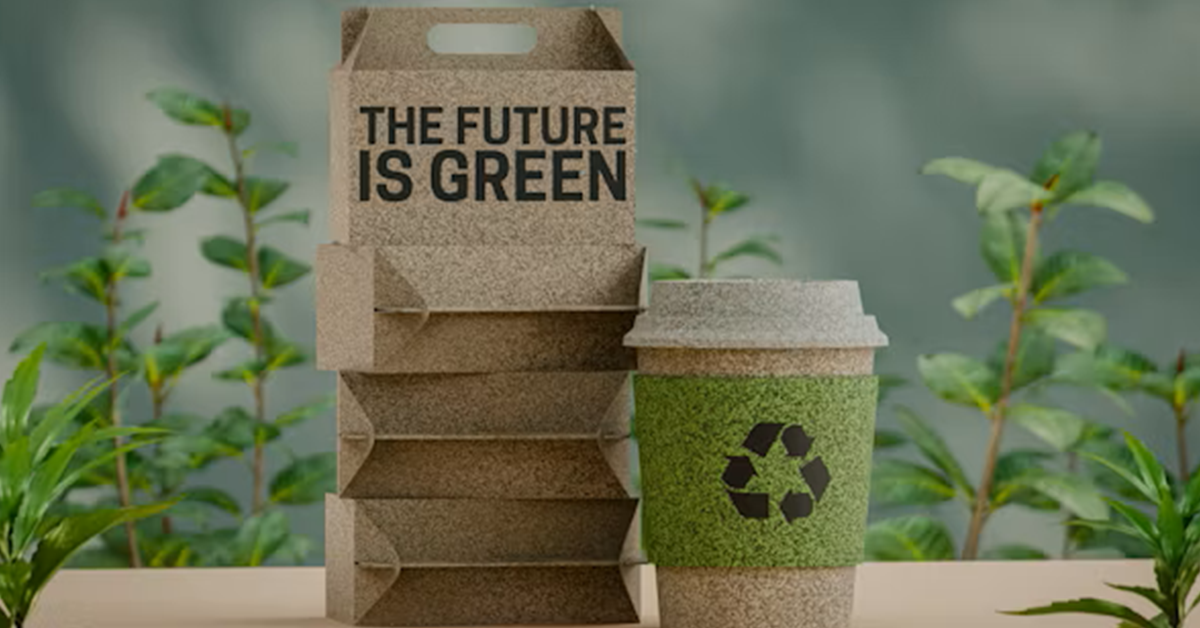
The 45Z Clean Fuel Production Credit served as a crucial incentive for the US biofuel industry. By making production more affordable, this credit has proven to directly contribute to increasing the output of sustainable energy sources.
Despite the successes already noted, the recent shift in the US administration has made the future of this tax credit uncertain. Potential policy changes could reshape the landscape for biofuel producers, investors, and related industries.
This FAQ helps by providing a comprehensive overview of the 45Z credit, potential amendments to what's covered, and best practices to prepare for a shifting regulatory environment. Whether you're a fuel producer, investor, or sustainability leader, understanding these developments will be essential to navigating the road ahead.
Make sure to also subscribe to our blog and newsletter for regular updates on these critical topics.
Use the table of contents below to navigate to specific questions.
What is the 45Z Tax Credit?
The 45Z Tax Credit, officially known as the Clean Fuel Production Credit, was established under the Inflation Reduction Act of 2022 (IRA). It provides a per-gallon tax incentive for producing transportation fuels with lifecycle greenhouse gas emissions below certain thresholds.
This credit aims to promote the production of cleaner fuels, such as sustainable aviation fuel (SAF) and other transportation fuels. Ultimately, the objective is to reduce the transportation sector's overall environmental impact by reducing CO2 output.
How is 45Z calculated?
45Z is calculated by multiplying the applicable amount per gallon (or gallon equivalent) of qualified transportation fuel by the fuel's emissions factor. The applicable amount varies based on the fuel type and whether specific labor requirements are met.
The breakdown of the credit calculation includes the following:
- Non-Sustainable Aviation Fuel (Non-SAF):
- Base amount: $0.20 per gallon.
- Increased amount: $1.00 per gallon if prevailing wage and apprenticeship (PWA) requirements are satisfied.
- Sustainable Aviation Fuel (SAF):
- Base amount: $0.35 per gallon.
- Increased amount: $1.75 per gallon if certain requirements are satisfied (see "What is the 45Z Tax Credit for SAF?").
The emissions factor is determined by subtracting the fuel's emissions rate (measured in kilograms of CO₂ equivalent per million British thermal units, kg CO₂e/mmBTU) from 50 kg CO₂e/mmBTU, then dividing the result by 50 kg CO₂e/mmBTU:
Emissions Factor = (50 - Emissions Rate) / 50
This formula quantifies the reduction in greenhouse gas emissions relative to a baseline of 50 kg CO₂e/mmBTU, rewarding fuels with lower emissions rates. For detailed guidance on calculating the credit and determining emissions rates, refer to the IRS Notice 2025-11.
What is the 45Z Tax Credit for SAF?
As mentioned, 45Z incentivizes SAF production with the following credits:
- $0.35 per gallon as a base credit.
- Up to $1.75 per gallon if PWA requirements are met.
The credit is calculated based on the SAF's emissions factor and rewards fuels with lower carbon outputs. Barring any shifts in these credits, it applies to SAF produced and sold from January 1, 2025, to December 31, 2027.
Why is the 45Z Tax Credit important?
The 45Z Tax Credit is crucial for accelerating the adoption of low-carbon fuels, thereby aiding in reducing greenhouse gas emissions from transportation. The incentive credit supports biofuel industry innovation while encouraging investment in further sustainable energy solutions.
Could the 45Z Tax Credit change?
Yes. The IRS issued Notice 2025-10 to request public input on various aspects of the credit. This includes the methodologies for calculating emissions factors and determining eligible taxpayers.
Feedback compiled during this period will inform the development of proposed regulations and may lead to changing the existing credit calculation guidelines. Stakeholders in the biofuels industry should closely monitor IRS updates to stay informed about potential changes resulting from this comment period.
What specific changes to the 45Z Tax Credit are being considered?
While no official changes have been announced, reports suggest that the Trump administration is reviewing various climate-related initiatives. Unsurprisingly, this includes the 45Z Tax Credit.
Potential modifications could involve repealing the credit entirely or altering its structure. These changes may impact the financial viability of producing certain biofuels.
How might the change in US administration affect the 45Z Tax Credit?
With Trump's return to power in January 2025, there is potential for significant policy shifts affecting the 45Z Tax Credit. The new administration has indicated intentions to repeal or modify key components of the Inflation Reduction Act, including the 45Z credit. Such changes may alter or eliminate the available incentives for clean fuel production.
When will 45Z be released?
45Z began taking effect on January 1, 2025. However, on January 10, the IRS and US Treasury announced proposed regulatory changes with a 90-day public comment period until April 10, 2025.
This means the credit remains in effect until this regulatory framework is decided and any changes are made. Stakeholders must continue to monitor the situation for updates as to what, if any, changes will take effect after this period.
How will potential changes to the 45Z Tax Credit impact biofuel industry investment?
If the 45Z Tax Credit is repealed or significantly altered, it could reduce financial incentives for companies to invest in low-carbon fuels. This change could potentially slow down innovation and infrastructure expansion.
Despite this risk, demand for sustainable fuels is still growing due to corporate sustainability goals and state-level programs such as California's Low Carbon Fuel Standard (LCFS). Businesses should assess their reliance on federal incentives and explore alternative funding sources or state-driven opportunities.
What role do state policies play in mitigating potential federal changes to the 45Z credit?
Even if federal incentives like the 45Z Tax Credit are reduced or repealed, state-level policies will continue to support low-carbon fuel production. Examples of these include the California LCFS and Oregon's Clean Fuels Program.
Many states are expanding their clean fuel initiatives, and this could offer continued market opportunities for biofuel producers. Companies should monitor state-level regulatory developments and consider expanding into markets with strong clean energy policies.
How can businesses advocate for policies that support clean fuel incentives?
Businesses can engage in advocacy efforts in multiple ways:
- Work with industry organizations with sustainability objectives
- Participate in public comment periods on proposed regulations
- Directly interact with policymakers over incentives and proposed changes
Industry groups such as the Renewable Fuels Association (RFA) and the National Biodiesel Board (NBB) actively lobby for policies that support biofuels. Companies should stay connected with these organizations to ensure their interests are represented in legislative discussions.
What should businesses in the biofuels market monitor during this period?
Businesses should closely follow policy announcements from the new administration. In particular, remain aware of news related to the Inflation Reduction Act and the 45Z Tax Credit.
Staying informed about legislative developments and proposed regulatory changes is essential for strategic planning and risk management.
Can companies prepare in any way for potential changes to the 45Z Tax Credit?
Companies can prepare by conducting comprehensive risk assessments to understand how potential policy changes might affect their operations and financials. Diversifying investment portfolios, exploring alternative funding sources, and engaging in active dialogue with policymakers and industry groups can also help mitigate risks associated with policy shifts.
How can market intelligence assist businesses during this transition?
Accurate market intelligence, including data and expert analysis, is critical for making informed decisions amidst policy uncertainty. Platforms like ResourceWise's Prima CarbonZero offer real-time data, market assessments, and predictive analytics. These elements come together to enable businesses to navigate complex regulatory environments and adapt to changing market conditions effectively.
Where can I find more information on navigating the biofuels market amidst policy changes?
For further insights, check out our recent articles on the blog:
- US Midwest Biofuels Outlook Part 1: Uncertainty and Opportunity Ahead
- US Midwest Biofuels Outlook Part 2: Challenges with 45Z
- Uncertainty Persists in US Biofuels as 45Z Delayed 90 Days
- 45Z Update: Imported UCO Now Excluded from Tax Benefit
These posts offer a closer look into the biofuels industry's current situation and future prospects in light of recent developments.
Subscribe to Blog and Newsletter to Stay Informed
Businesses in the biofuels market must stay informed and adaptable. This is especially true during periods of regulatory and administrative transitions.
Subscribe to our blog and monthly newsletter today to ensure you're not missing out on critical 45Z updates and other biofuel news and commentary.



![[Video] Molecules to Markets Episode 1: Chemical Markets Begin 2026 in a Supply-Driven, Margin-Sensitive Environment](https://www.resourcewise.com/hubfs/images-and-graphics/blog/chemicals/2026/weekly-video-series-molecules-to-markets/CHEM-Weekly-Video-Series-Molecules-to-Markets-Episode-1.png)

